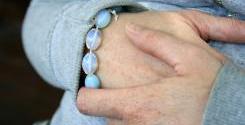Treatment
Self Tests
OCD
- Facts about OCD
- OCD Questions & Answers
- YBOCS: Yale-Brown OCD Scale
- Sexual Obsessions
- HOCD
- Hoarding & Saving OCD
- Washing & Cleaning
- Christians & OCD
- Medication for OCD
- Combining Medication for OCD
- CBT Therapy for OCD
- Therapy for Kids with OCD
- OCD & African Americans
- Herbal Remedies for OCD
- Brain Surgery for OCD
- Treatment Resistant OCD
- OCD & Depression
- Real People's OCD Stories
- Online Therapy for OCD
Spectrum Disorders
- Obsessive-Compulsive Disorder
- Tourette Syndrome
- Hypochondria
- Body Dysmorphic Disorder
- Depersonalization Disorder
- Trichotillomania (Hair Pulling)
- Compulsive Skin Picking
- Nail Biting
- Deliberate Self-Harm
- Olfactory Reference Syndrome
- Sexual Compulsions
- Compulsive Gambling
- Kleptomania
- Eating Disorders
- Obsessive Compulsive Personality
- Autistic Disorder
Anxiety & Mood
- Panic Disorder
- Panic Attacks
- Social Anxiety & Phobia
- Taijin Kyofusho
- Specific Phobias
- Generalized Anxiety
- Traumatic Stress Disorders
- Major Depressive Disorder
- Bipolar Disorder
- OCD & Bipolar
- Depression & God













